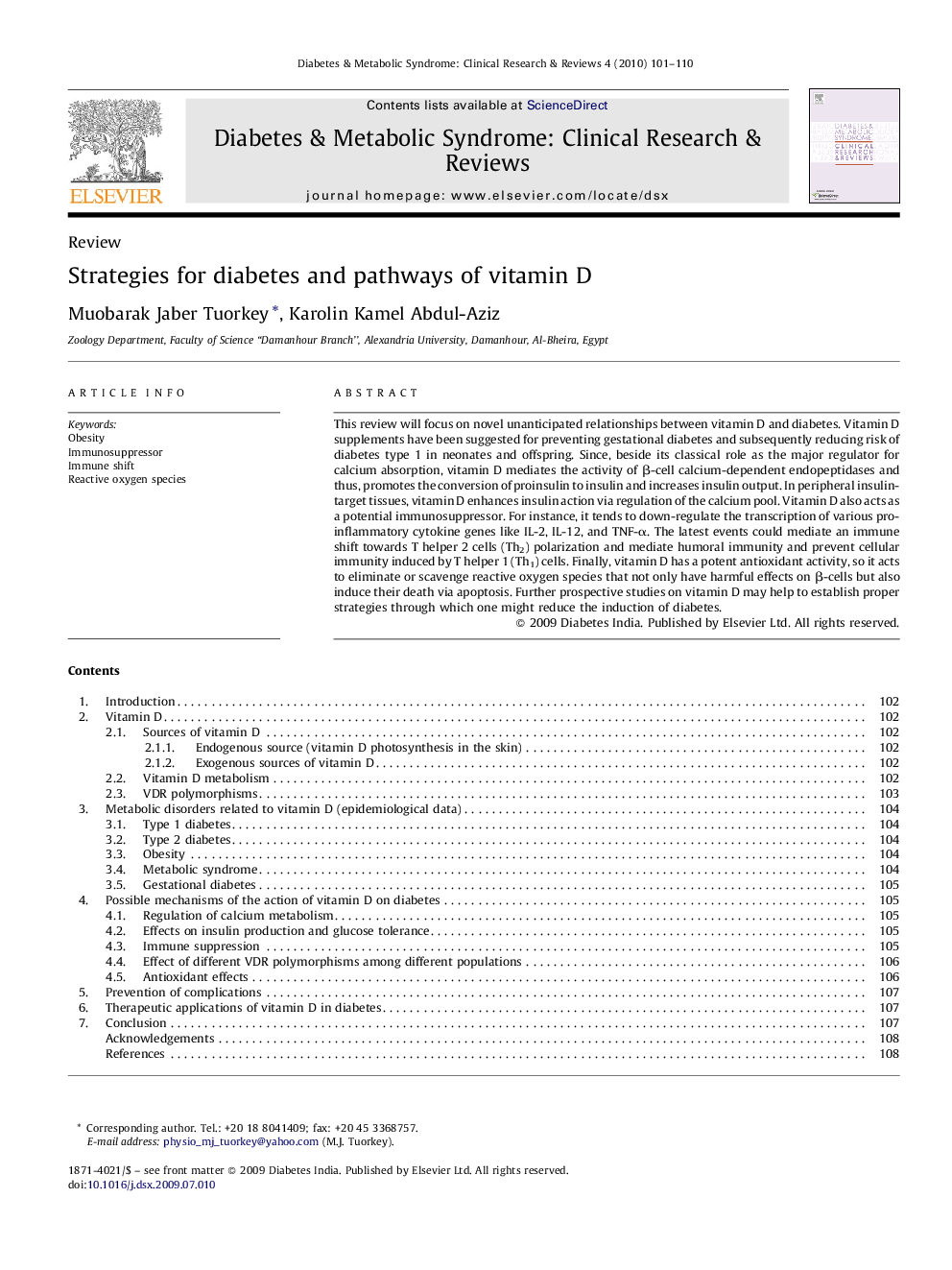| Article ID | Journal | Published Year | Pages | File Type |
|---|---|---|---|---|
| 2910350 | Diabetes & Metabolic Syndrome: Clinical Research & Reviews | 2010 | 10 Pages |
This review will focus on novel unanticipated relationships between vitamin D and diabetes. Vitamin D supplements have been suggested for preventing gestational diabetes and subsequently reducing risk of diabetes type 1 in neonates and offspring. Since, beside its classical role as the major regulator for calcium absorption, vitamin D mediates the activity of β-cell calcium-dependent endopeptidases and thus, promotes the conversion of proinsulin to insulin and increases insulin output. In peripheral insulin-target tissues, vitamin D enhances insulin action via regulation of the calcium pool. Vitamin D also acts as a potential immunosuppressor. For instance, it tends to down-regulate the transcription of various pro-inflammatory cytokine genes like IL-2, IL-12, and TNF-α. The latest events could mediate an immune shift towards T helper 2 cells (Th2) polarization and mediate humoral immunity and prevent cellular immunity induced by T helper 1 (Th1) cells. Finally, vitamin D has a potent antioxidant activity, so it acts to eliminate or scavenge reactive oxygen species that not only have harmful effects on β-cells but also induce their death via apoptosis. Further prospective studies on vitamin D may help to establish proper strategies through which one might reduce the induction of diabetes.
